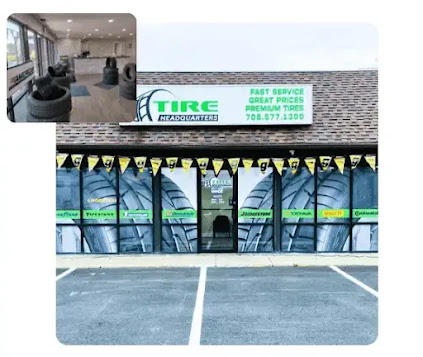Tire Installation Cost: What You Need to Know Before You Buy
When purchasing new tires for your vehicle, understanding the tire installation cost is just as important as the price of the tires themselves. Many vehicle owners focus solely on tire prices but forget to factor in the installation fees that come with professional mounting, balancing, and other essential services.
This comprehensive guide will help you understand what influences the tire installation cost, what services are typically included, and how to find the best value for your money.
What Is Included in the Tire Installation Cost?
The tire installation cost covers more than just putting tires on your vehicle’s wheels. Professional tire installation typically includes several important services:
-
Mounting: Fitting the tire onto the wheel rim.
-
Balancing: Using specialized equipment to ensure the tire rotates smoothly without causing vibrations.
-
Valve Stem Replacement: New valve stems may be installed to ensure air retention.
-
Tire Pressure Check and Inflation: Adjusting tire pressure to the manufacturer’s specifications.
-
TPMS Reset: Resetting the Tire Pressure Monitoring System if your vehicle has one.
-
Old Tire Disposal: Removing and properly disposing or recycling your old tires.
By understanding these components, you can better appreciate the value behind the tire installation cost.
Average Tire Installation Cost Breakdown
The cost to install tires varies by location, type of vehicle, tire size, and service provider. Here’s a general overview of what you might expect to pay:
| Service Type | Average Cost Per Tire | Estimated Total (4 Tires) |
|---|---|---|
| Basic Mounting & Balancing | $15 - $30 | $60 - $120 |
| Premium or Performance Tires | $35 - $50 | $140 - $200 |
| Valve Stem Replacement | $5 - $10 | $20 - $40 |
| TPMS Reset | $10 - $20 | $40 - $80 |
| Wheel Alignment (Optional) | $80 - $150 (flat rate) | — |
Keep in mind these prices may fluctuate based on geographic region and specific tire shops.
Factors That Influence Tire Installation Cost
Several factors can affect the total tire installation cost you’ll face:
1. Vehicle Type
Larger vehicles such as SUVs, trucks, or luxury cars often require more specialized handling or equipment, which increases labor costs.
2. Tire Size and Type
Low-profile, run-flat, or performance tires are often more complicated to install, resulting in higher fees.
3. Location and Service Provider
Installation costs in big cities may be higher than in rural areas. Chain stores, dealerships, and independent shops all price differently.
4. Additional Services
You may need to add costs for services like wheel alignment, TPMS sensor replacement, or nitrogen inflation.
5. Convenience Options
Some providers offer mobile tire installation, where they come to your location, usually at a premium.
Why Professional Tire Installation Is Worth the Cost
Skipping professional tire installation or attempting a DIY install can lead to serious problems:
-
Safety Risks: Improper installation can cause tire failure, blowouts, or poor vehicle handling.
-
Premature Wear: Unbalanced or misaligned tires wear out faster.
-
Warranty Issues: Many tire warranties require professional installation to remain valid.
-
Performance Impact: Proper installation ensures smooth rides, better fuel efficiency, and optimal traction.
By investing in professional services, you protect both yourself and your vehicle.
How to Save Money on Tire Installation Cost
Here are some strategies to reduce your tire installation cost without compromising quality:
1. Buy Tires and Installation Together
Many tire retailers offer package deals that include installation at a discounted rate or even for free.
2. Search for Coupons and Promotions
Seasonal deals, holiday sales, or manufacturer rebates can significantly reduce costs.
3. Compare Multiple Providers
Get quotes from different shops, including local tire dealers, big chains, and mobile services.
4. Avoid Unnecessary Extras
Only add optional services like wheel alignment if your vehicle needs it, based on a professional inspection.
What to Expect During Tire Installation
Here’s a step-by-step overview of a typical tire installation appointment:
-
Removing Old Tires: The technician safely removes your old tires from the rims.
-
Inspecting Wheels and Tires: A thorough check for damage or wear.
-
Mounting New Tires: Using specialized machinery to fit tires onto wheels.
-
Balancing Tires: Computerized balancing to ensure even rotation.
-
Installing Valve Stems & Inflating Tires: New valve stems are installed and tires are inflated to proper pressure.
-
Resetting TPMS: Sensors are reset if applicable.
-
Safety Check: Final inspection before you leave the shop.
The entire process usually takes between 30 to 60 minutes for four tires.
FAQs About Tire Installation Cost
Q1: How much does the average tire installation cost?
Most tire installations cost between $15 and $50 per tire, depending on your vehicle and services.
Q2: Is balancing included in tire installation?
Yes, most professional tire installations include balancing at no extra charge.
Q3: Can I install tires myself to save money?
DIY installation is risky without proper tools and experience and can void warranties or compromise safety.
Q4: Should I get a wheel alignment during tire installation?
It’s not mandatory but highly recommended to prevent uneven tire wear and improve vehicle handling.
Q5: Are there any hidden fees?
Always ask for a detailed quote upfront. Some shops charge extra for services like TPMS reset or disposal fees.
Final Thoughts
Understanding the tire installation cost helps you plan your vehicle maintenance budget and avoid surprises. While prices can vary based on several factors, investing in professional installation guarantees safety, performance, and long-term value.


Comments
Post a Comment